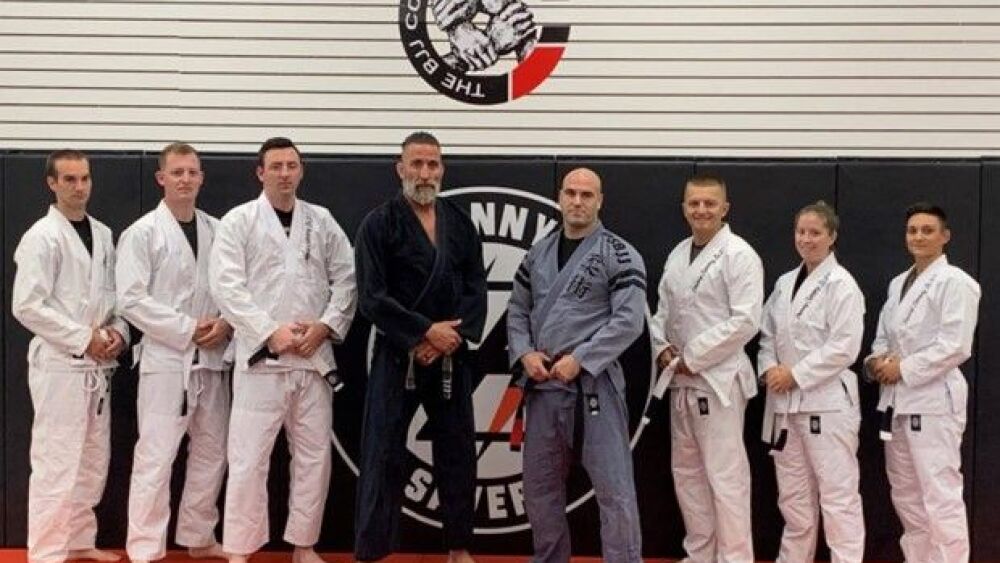By Amanda Spence
TIVERTON, R.I. — A Rhode Island police department is partnering with a local martial arts academy to offer a pilot Brazilian Jiu-Jitsu training program.
According to a press release, the program is the brainchild of Tiverton Police Department Planning and Training Lt. Bryan Balagi who has been training in Brazilian Jiu-Jitsu (BJJ) for around 12 years.
“Yearly use of force training covers policy changes and data and statistics from the previous year, so you’re looking at probably 2-3 hours for a refresher in hand-to-hand physical training each year,” Lt. Palagi said. “The physical techniques and skills you learn in the academy are perishable, so it can be difficult to remain proficient in those skills without training regularly.”
To address this deficit, Palagi wanted to create a program where agencies could train in BJJ. He reviewed other departments’ training techniques for BJJ programs, modeling the pilot on a program in Marietta, Georgia, which has been shown to have decreased the use-of-force in the agency.
Tiverton PD partnered with Danny Savery, a former Tiverton officer who owns the Danny Savery BJJ and Martial Arts Academy, to develop the new program. From there, they selected six Tiverton police officers to participate.
Each of the six officers is required to attend four BJJ classes every month. They can also attend up to eight per month in total. Because of this, the officers get four to eight hours of training every month.
“In the police academy, you learn pretty quickly that a portion of the job is going hands on with people and arresting people who don’t want to be arrested, and you might have to be able to maintain control of somebody for a long period of time until backup arrives,” program participant Officer Lewis Walton said. “You learn how important it is to be confident, to keep your composure and not to exert yourself too much in the first few minutes.”
The officers get to train right along with civilians too.
“When the officers train alongside the community, you have all types of people of different sizes and professions as students, so they’re also able to talk to and work with different people,” Savery explained. “The students also overcome adversity while training and learning with each other, which allows officers and civilians to build a unique bond.”
After a few months, the department will analyze and track data when it comes to use of force, officer injuries, and suspect injuries and compare it between officers in the program and those who aren’t.
NEXT: 4 steps to incorporate Jiu-Jitsu into your department’s use of force training


